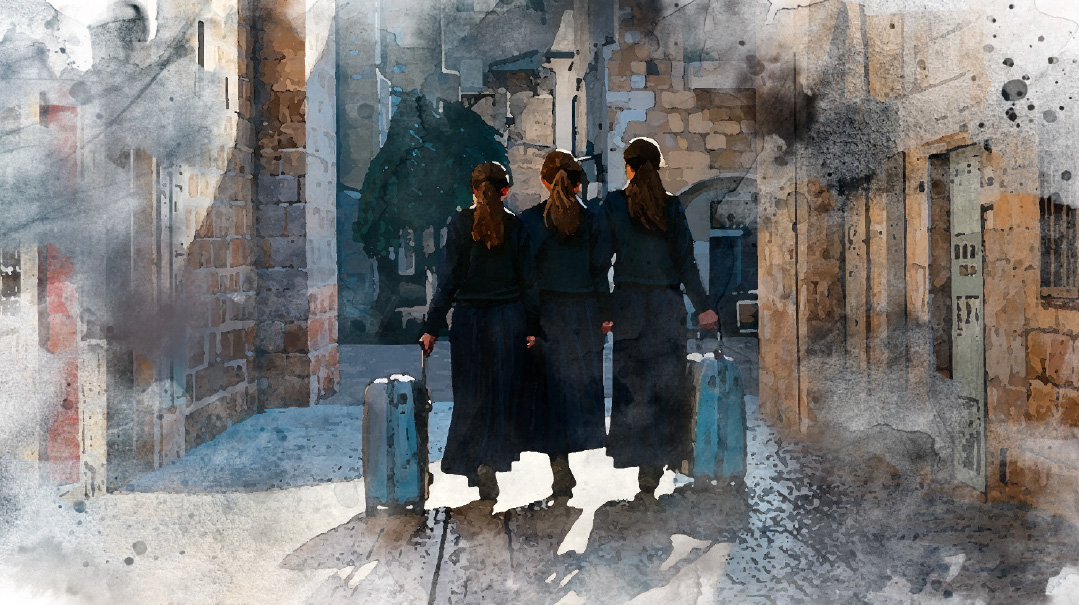First Response

Can we highlight the chesed while acknowledging the pain?

What do our readers want from us, and what should we be giving them?
That’s always the question — but this week, after a bein hazmanim replete with tragedy, it was harder than ever to answer. Somehow these losses felt especially painful, because so many came at moments of family togetherness — precisely what we savor most during those precious, golden weeks of summer vacation.
As we read headline after horrific headline, we wondered: What is our role? What do readers expect from their weekly magazine when the week that’s just passed is punctured by so much pain?
As feeling and thinking Jews, we know there’s a measure of indifference and cruelty in processing so much tragedy — so many lives irrevocably altered — without feeling that we, in response, must change. So we inevitably get letters from readers trying to parse the events and intuit what we as a community must do differently. Which kabbalah to take on. Which behavior to correct.
But we’re not an Urim V’Tumim. It’s not our job to say “this happened because of that,” and “because we suffered this, we must change that.” We do our best to provide a weekly blend of information, inspiration, entertainment, and to give you some insight or thought to store in your pocket for the week ahead. At the same time, we assume that you have your own rav or rebbe, your mentor or framework, your internal spiritual compass. To divine the precise cosmic meaning of a tragedy? That’s not within the ambit of a glossy family magazine.
S
o is our role then to report on the actual details of the tragedies? Since we’re not an instant-news source, we’ve never considered it our job to give you the news you already know. When it’s appropriate, and we can add a personal perspective to a story, we’ll introduce you to the people behind the headlines. But it’s important that we never cross the invisible line between empathy and exploitation.
When the bereaved families are open to sharing their perspective — and sometimes they let us know that this is in fact their desire — then we give them that platform. When that’s not the case, we try to spare them from the public exposure. This past week, some of the victims’ families were quoted in the Hebrew language press, but our readers have made it clear to us that they aren’t interested in reports from shivah houses. They feel it trespasses a sacred line.
So what’s our mandate? We’ve thought about this a lot, and decided that one constructive thing we can do against this murky backdrop of loss and mourning is to shine a light on the good people who are working behind the scenes to keep us safer. This kind of story doesn’t mitigate the suffering; it respects the private pain of those who are hurting most, and it focuses on people who are making a difference. It highlights the responders who devote their time and resources to averting tragedy. That’s what we focused on this week.
S
omething else we can do is highlight those moments of chesed, the stories that ended with collective sighs of relief. Because even for those of us who drew in too many breaths of horror as yet another headline overtook the screen, there were many happy endings this summer.
The Mix this week features one such story. It was actually scheduled to be published a month ago. We decided to pull it at the time — the story shared too many notes with a tragedy that happened that week, and we were nervous that the conclusion could feel discordant and hurtful to people who were experiencing terrible pain. That’s our biggest fear and the last thing we’d want to do.
We decided to wait a month — and tragically, found ourselves facing the same dilemma. With several more tragic drownings fresh in our consciousness, dare we run the story? After much agonizing and discussion, we decided to do so — not, chas v’shalom, out of disregard for anyone’s suffering, but in an effort to focus on those pinpricks of light amid a summer marked by darkness.
It’s a feature of human nature — certainly of the magazine business — to pass over the happy endings. Good news doesn’t usually make the headlines. But after reading so much heart-wrenching news and mourning along with so many families, we thought that there might be a place and purpose for this kind of story. As Jews, we’ve always had the ability to feel pain and grief in a corner of our hearts, while also experiencing genuine gratitude for the good that’s always there. Can we highlight the chesed while acknowledging the pain? This week, that’s what we tried to do.
(Originally featured in Mishpacha, Issue 775)
Oops! We could not locate your form.






